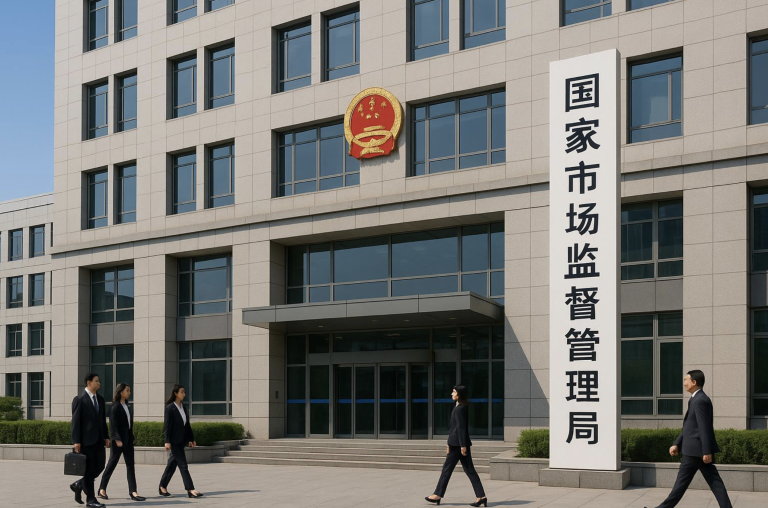China Clarifies Post-Termination Risks with New Supreme Court Interpretation on Employment Law
In a move to provide greater clarity and guidance on the handling of post-termination employment disputes, China’s Supreme People’s Court has issued a new judicial interpretation on employment law. The interpretation, which was released in September 2025, addresses several key issues that have long been a source of uncertainty and contention for both employers and employees, including reinstatement, non-compete agreements, and the calculation of economic compensation. For UAE businesses operating in China, this new interpretation provides valuable insights into the evolving legal landscape of employment relations and underscores the importance of robust and compliant HR practices.
The new interpretation is a response to the increasing complexity of employment disputes in China and the need for a more consistent and predictable application of the law. By providing clear and authoritative guidance on a range of post-termination issues, the Supreme Court aims to reduce the number of disputes, promote fairer outcomes, and create a more harmonious and stable employment environment. This article provides an analysis of the key provisions of the new interpretation and their implications for UAE businesses.
Key Provisions of the New Judicial Interpretation
The new judicial interpretation clarifies several key aspects of post-termination employment law. The most significant provisions are as follows:
| Provision | Description |
|---|---|
| Reinstatement of Employment | The interpretation provides clearer guidance on the circumstances under which an employee can be reinstated to their former position after a wrongful termination. It also clarifies the calculation of back pay and other benefits in such cases. |
| Non-Compete Agreements | The interpretation sets out more specific rules on the scope and enforceability of non-compete agreements. It clarifies the requirements for a valid non-compete agreement, the maximum duration of such agreements, and the calculation of economic compensation for employees who are subject to non-compete restrictions. |
| Economic Compensation | The interpretation provides more detailed guidance on the calculation of economic compensation for employees who are wrongfully terminated. This includes clarification on the definition of “average monthly salary” and the treatment of bonuses and other variable income. |
| Burden of Proof | The interpretation clarifies the burden of proof in employment disputes, particularly in cases involving the termination of an employee for poor performance. It emphasizes the need for employers to have clear and objective performance standards and to provide employees with adequate training and support before taking disciplinary action. |
Implications for UAE Businesses
The new judicial interpretation on employment law will have a significant impact on the HR practices of UAE businesses operating in China.
A More Predictable Legal Environment
The new interpretation will help to create a more predictable legal environment for employment relations in China. By providing clearer guidance on a range of post-termination issues, the interpretation will reduce the uncertainty and risk associated with employment disputes. This will make it easier for UAE businesses to manage their workforce and to resolve any disputes that may arise in a fair and efficient manner.
The Importance of Compliant HR Practices
At the same time, the new interpretation underscores the importance of having robust and compliant HR practices. UAE businesses will need to review their employment contracts, employee handbooks, and performance management systems to ensure they are in line with the new guidance. This includes ensuring that non-compete agreements are reasonable in scope and duration, that performance standards are clear and objective, and that termination procedures are fair and transparent.
A Greater Emphasis on Employee Rights
The new interpretation also reflects a greater emphasis on the protection of employee rights in China. This is a trend that is likely to continue as the Chinese government seeks to create a more harmonious and stable society. UAE businesses that are committed to fair and ethical labor practices will be well-positioned to attract and retain the best talent in China.
Navigating the Evolving Employment Landscape
To navigate the evolving employment landscape in China successfully, UAE businesses should take the following steps:
- Conduct a comprehensive review of your HR practices: Review your employment contracts, employee handbooks, and performance management systems to ensure they are in compliance with the new judicial interpretation.
- Provide training for your HR managers: Ensure that your HR managers are fully aware of the new interpretation and understand its implications for their day-to-day work.
- Seek professional legal advice: The employment law landscape in China can be complex. Seek professional legal advice from lawyers with expertise in Chinese employment law to ensure that your business is in full compliance with all relevant regulations.
A More Mature and Balanced Employment Relationship
The new judicial interpretation on employment law is a sign of the increasing maturity and balance of the employment relationship in China. By providing clearer guidance on post-termination issues, the interpretation will help to promote fairer outcomes and to create a more harmonious and stable employment environment. For UAE businesses, this is a positive development that will help to create a more predictable and attractive environment for investment and growth.
References
[1] DLA Piper. (2025, September 22). From reinstatement to non-competes: Navigating post-termination risks in China under the New Supreme Court Interpretation and related guidelines. Retrieved from https://knowledge.dlapiper.com/dlapiperknowledge/globalemploymentlatestdevelopments/2025/From-reinstatement-to-non-competes-Navigating-post-termination-risks-in-China-under-the-New-Supreme-Court-Interpretation-and-related-guidelines







